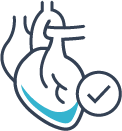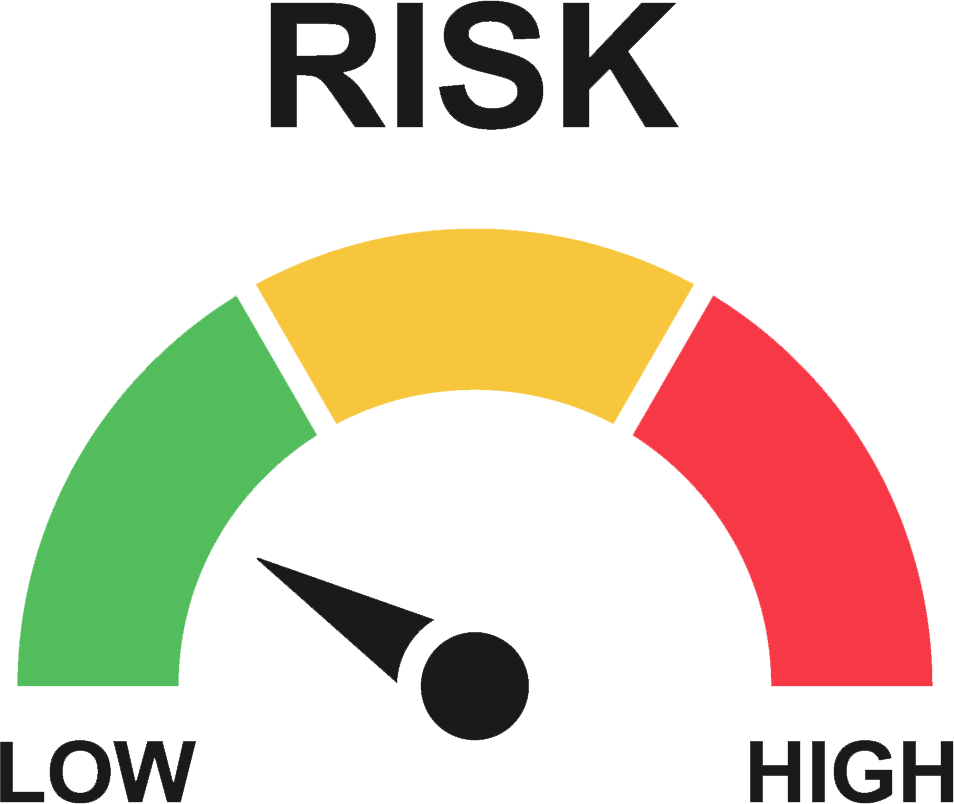Low Dose CT
What is a CT Scan?
A CT scan, CAT scan or computed tomography scan, is a medical imaging procedure that uses computer-processed combinations of many X-ray measurements. These measurements are taken from many different angles and produce cross-sectional images of specific areas of a scanned object (brain, chest, spine etc), allowing the user to see inside the object without cutting.
How does a CT Scan work?
A CT scan is like a sophisticated x-ray machine. Imagine you’re lying inside a big donut. This donut takes many X-ray pictures of your body from different angles while spinning around you. Then, a computer puts all these pictures together to show a clear image of what’s inside your body, like looking at the layers of a cake. This helps doctors see inside you without any surgery, so they can figure out if everything is okay or if they need to help you in any way.

Our CT Services

General

Cardiac

Oncology

Dual Energy
Bulk-Billed CT Scans
Our diagnostic CT scans (excluding coronary calcium scoring) as well as CT-guided injections are bulk billed, meaning that as long as you hold a valid Medicare card and a referral from a GP or Specialist (which can be addressed to GXU or any radiology practice), there’ll be no out-of-pocket cost for your exam.
For your CT appointment, remember to bring either your physical or digital Medicare card and GP or Specialist referral. Once your CT scan or injection has been completed, we submit a claim to Medicare for payment, so you can rest easy knowing that we’ve taken care of the financial side of things.
Where we Operate our CT Scan Services
Our CT scans are performed at our Thornton practice, conveniently located in the Thornton Healthcare complex which hosts a variety of medical services, including pathology, obstetrics, physiotherapy and podiatry.
Getting to our practice is a short, 30-minute drive from Newcastle and 10 minutes from Maitland. We’re just minutes away from the freeway exit and have ample free onsite parking. Due to the specialist nature of our service we frequently have patients travelling from Taree, Gloucester, Scone, Tea Gardens and the Central Coast.
For patients using public transport, a bus stop is located directly in front of our building on Anderson Drive. If you’re travelling by taxi, please let our friendly reception team know, and we can help arrange one for you.

Why book a CT Scan with GXU?
At GXU Radiology, we’re committed to providing top-tier medical imaging with a personal touch, ensuring every patient receives the highest quality care. For this reason, our clinic offers the latest in Siemens dual energy CT technology, acquiring images in as little as 0.33 seconds all while ensuring exceptionally low radiation doses. This industry-leading technology allows us to deliver precise results, helping get you the diagnosis you need.
Still unsure? Here’s why you should choose GXU for your next CT scan:
We bulk bill all diagnostic Medicare-eligible referrals, so you can focus on your health, not the cost.
All scans performed in our clinic are supervised by a full-time on site specialist, in contrast to many other larger corporate providers where there is no on site radiologist.
We’re here when you need us most, offering same day appointments for urgent examinations.
Enjoy easy access to our clinic in Thornton with extensive free onsite parking.
Founded in 2008, we have established ourselves as a trusted radiology provider.
We are an accredited practice, affiliated with HDAA and the Royal Australian and New Zealand College of Radiologists, ensuring the highest standards of practice.
Our highly trained team, have more than 25 years of experience across various radiology modalities. With this tried and tested experience we’ll guide you through the entire process helping reduce any anxiety.
All reports are completed by specialists and made easily accessible, so your healthcare provider can receive timely, accurate insights.
What Our Customers Say
EXCELLENTTrustindex verifies that the original source of the review is Google. Was very happy with how professional everyone was. Dr was so gentle with cortisone injection. I found the staff be be polite and caring. Would highly recommendPosted onTrustindex verifies that the original source of the review is Google. Staff were very friendly and professional. My Biopsy was painless with every step explained. Could not have asked for better care. I highly recommend GXU.Posted onTrustindex verifies that the original source of the review is Google. I was running late and they still fit me in. Explained the procedure thoroughly. All staff were amazing. Thoroughly recommend.Posted onTrustindex verifies that the original source of the review is Google. The staff were great the waiting time was good I had a good experience there with no complaints at allPosted onTrustindex verifies that the original source of the review is Google. Greeted by friendly and professional staff who talked through the MRI process in detail and made it as comfortable as possible throughout.Posted onTrustindex verifies that the original source of the review is Google. Staff were friendly, polite and helpful. I had a ct scan guided injection in my back and the procedure went smoothly and was pain free. Highly recommendPosted onTrustindex verifies that the original source of the review is Google. Staff were courteous, professional and kind. It was an overall a good experience and I will definately go there again.Posted onTrustindex verifies that the original source of the review is Google. Friendly efficient, caring, they always go beyond to get you into an earlier appointment if they canPosted onTrustindex verifies that the original source of the review is Google. The experience attending this clinic is second to none. The care and treatment is patient centred. Everyone is so lovely, warm and welcoming from the moment you walk in the door. Best experience I have had attending a radiology clinic in years. Highly recommend 😊
What are the Risks Involved with CT?
Radiation
When you get a CT scan, you’re exposed to a tiny bit of radiation, just like the kind you get from the sun or when you go on an aeroplane ride. Think of it like this: If you went on a long flight, like from Sydney to London, the amount of radiation you’d get from that flight is like getting a CT scan. Even though it’s a bit more radiation than just sitting in your backyard, doctors make sure it’s safe and only use it when really needed to get a clear picture of what’s going on inside your body.
Pregnancy
Please advise our staff if you are pregnant or think you might be. The small dose of radiation from a CT scan has not been shown to cause harm to unborn babies. However CT is only used with caution in pregnancy when the clinical benefit significantly outweighs any small theoretical risk.
Dye / Contrast
When you get a CT scan, sometimes doctors use a special dye called “contrast.” It’s like a highlighter for the pictures, making certain areas inside you light up so they can see better. Some people might feel a bit warm or taste something funny when it’s given, but it usually goes away quickly. Like with any medication, it’s possible to have an allergic reaction to contrast. The risk of having an allergic reaction is very low. That’s why our radiographers and doctors always ask questions before giving contrast to make sure you’re safe. Just like they wouldn’t give peanuts to someone who’s allergic, they’re very careful with contrast too!

Book a CT Scan Appointment
To book a routine appointment you can use the online booking system on our website or over the phone. For more urgent appointments or to speak to one of our team please get in direct contact with the clinic on 02 4999 6499.
Some of our specialised tests such as CT Coronary Angiograms require special preparation, which we will inform you of at the time of booking.
Frequently Asked Questions
What does a CT Scan Detect?
A CT (Computed Tomography) scan provides detailed images of the body’s internal structures. It allows healthcare professionals to examine bones, organs, blood vessels, and soft tissues with exceptional clarity. CT scans are used to detect a variety of conditions, including fractures, tumours, infections, internal bleeding, and vascular diseases. CT technology aids in accurate diagnosis, treatment planning, and guiding surgical procedures.

How Long Do CT Scans Take?
There are two parts to the examination, the preparation and the scan itself.
When you arrive at the clinic, if you have not been before, we will ask you to provide your contact details and referral from your doctor. If your scan requires contrast, the radiographer will discuss the procedure with you and then insert a small cannula for the contrast injection. If there are any difficulties putting in a cannula, our on site Radiologist will perform this under ultrasound guidance with local anaesthetic for numbing.
The CT scan is very quick, taking only several minutes. Our scanner is very open, so claustrophobia is not usually an issue. If you suffer from claustrophobia, our staff will work with you to get the scan done, in many cases we can change your positioning to greatly minimise the feeling. If you are having a CT Coronary Angiogram with GXU Radiology Specialists you will find all relevant information for your scan here.
What Happens During a CT Scan?
Before the CT scan starts, you will lie down on a table, possibly in a specific position. The radiographer might use pillows to help you stay still and ensure you are in the right position for clear images.
You may be asked to hold your breath during short scans that last only 10 to 20 seconds. If your CT scan requires a contrast dye, it is given through an injection during the scan. You might feel a warm sensation all over or a slightly funny taste in your mouth, but this only lasts a few moments.
Can CT Scan Results be seen Immediately?
Once your CT scan has been completed, your images are viewed by the radiographer to confirm all the appropriate images have been taken. The images are then uploaded to an electronic system, so that your referring doctor may be able to view them.
Our radiologist reviews the images, dictates a report which is then transcribed and verified before being sent to your doctor. We allow up to 48 hours for non-urgent reports to be completed, so we strongly encourage that you make an appointment with your doctor after a couple of days to review your results.
Your referring doctor will be informed of any urgent results immediately after the scan by our specialist.
